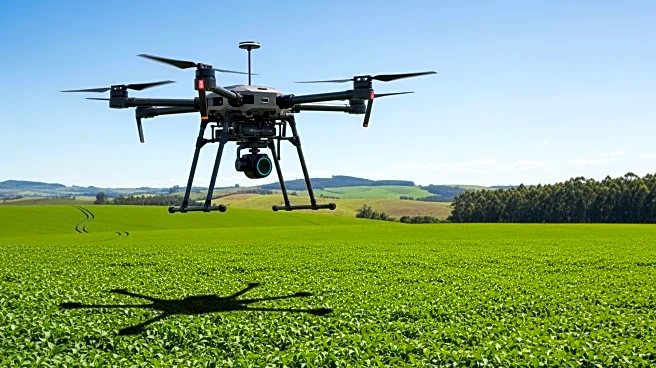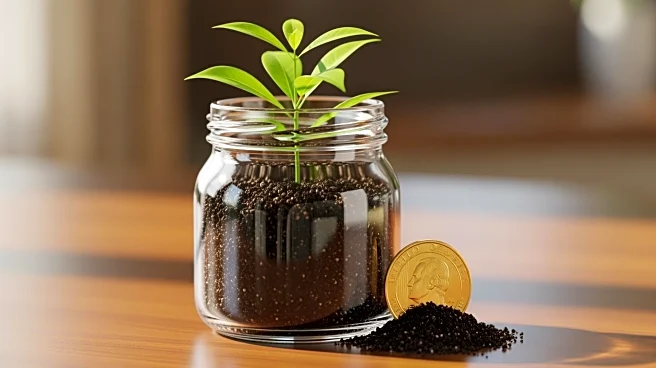What's Happening?
The precision agriculture market in Brazil is expected to grow significantly, reaching USD 782 million by 2032, with a compound annual growth rate of 9.37%. This growth is driven by the adoption of advanced technologies such as GPS, GIS, drones, and IoT-based systems, transforming traditional farming into a data-driven sector. The Midwest region, known for large-scale soybean and corn cultivation, leads the market due to its focus on operational efficiency. Government incentives and rising demand for sustainable farming practices are key factors supporting this technological shift.
Why It's Important?
The expansion of precision agriculture in Brazil highlights the country's commitment to enhancing agricultural productivity and sustainability. As one of the world's top agricultural exporters, Brazil's adoption of technology-driven farming practices can improve resource efficiency and reduce operational costs. This growth has implications for global food supply chains and Brazil's economic position in the agricultural sector. The focus on precision agriculture aligns with global trends towards sustainable farming, potentially influencing international trade and environmental policies.
Beyond the Headlines
The growth of precision agriculture in Brazil may lead to increased investment in rural infrastructure and digital literacy programs, addressing challenges such as high initial costs and limited technical know-how among farmers. The market's expansion could also drive innovation in agricultural technologies, fostering partnerships between local startups and multinational corporations. As Brazil continues to integrate precision farming, it may set a precedent for other countries seeking to modernize their agricultural practices.











